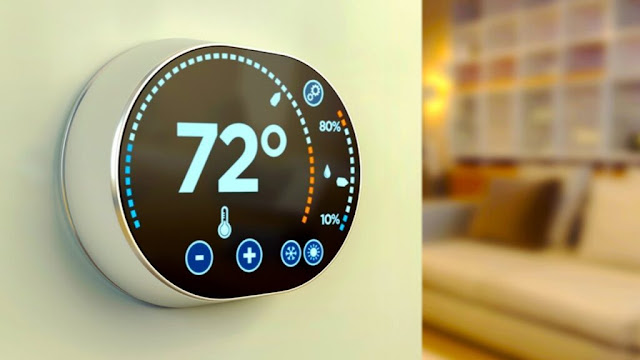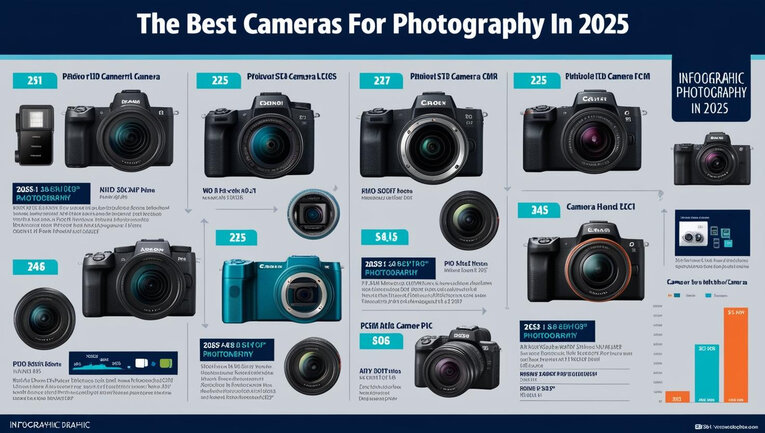Smart Home Devices: The Future of Home Automation
Friends, in today’s blog article I will talk about the Smart Home Device Kya Hai that allow you to take care of your home even in your absence.
In today’s world, everything is based on devices, and with these devices, you can protect your home from burglars or criminals that may pose a threat to you. For this, you will need some smart home devices.
Smart home devices are transforming the way we live. With just a few taps on your smartphone, you can control your home’s lighting, temperature, security, and even entertainment. Whether you’re at home or away, smart home devices give you full control over your living space. In this article, we will explore the benefits and features of smart home devices and understand how they are shaping the future of home automation.
Benefits of Smart Home Devices
Convenience:
The most obvious benefit of smart home devices is the convenience they provide. With just a few taps on your smartphone, you can control your home from anywhere in the world. This means you can adjust the temperature or turn off the lights even when you’re not at home.
Energy Efficiency:
Smart home devices can also help you save energy and money. By automating your home, you can reduce your energy consumption by setting your lights and thermostat to turn off when you’re not at home. This not only helps the environment but also reduces your energy bills.
Security:
Another benefit of smart home devices is the added security they provide. With smart locks, cameras, and sensors, you can keep an eye on your home even when you’re away. This can give you peace of mind knowing that your home is safe.
Features of Smart Home Devices
Smart Lights:
Smart lights are among the most popular and convenient smart home devices. These lights can be controlled remotely through your smartphone or voice assistant. You can set schedules, adjust brightness, or change colors to suit your mood or needs. Some smart lights even have motion sensors, so they turn on when you enter a room and off when you leave, saving energy.
Smart home devices have the potential to revolutionize the way we live by making our homes more convenient, efficient, and secure. As technology continues to evolve, these devices will become even more integrated into our daily lives, offering even more advanced features and capabilities. Whether you want to enhance your home’s security, save energy, or simply enjoy more control over your environment, smart home devices offer solutions for all.

Smart Lights
Smart lights allow you to control the lighting in your home through your Smart Home Device. You can turn the lights on and off, adjust the brightness, and even set schedules. This helps you save energy and create the perfect ambiance for any occasion.
Smart Thermostats
Smart thermostats are another essential smart home device that helps you maintain the ideal temperature in your home. They can be controlled remotely through your smartphone or voice assistant, allowing you to adjust the temperature while you are at home or even when you are away. Smart thermostats learn your preferences over time and automatically adjust settings to optimize energy use, ensuring comfort while also saving on energy bills. Some models can even detect whether you are home or away and adjust the temperature accordingly to maximize efficiency.

Smart Thermostats
Smart thermostats allow you to control the temperature in your home from your smartphone. You can set schedules, adjust the temperature, and even track your energy usage. This can help you save money on your energy bills and ensure that your home is always at the perfect temperature.
Smart Locks

Smart Locks
Smart locks allow you to control the locks on your doors from your smartphone. You can lock and unlock your doors, set schedules, and even grant access to guests. This can provide added security for your home and peace of mind, knowing that your doors are secure.
Here are some additional details:
Compatibility: Ensure that the smart lock is compatible with your existing door lock and deadbolt. Some smart locks are designed to retrofit onto your current lock, while others may require you to replace the entire lock and deadbolt.
Connectivity: Smart locks come in two types of connectivity: Wi-Fi and Bluetooth. Wi-Fi-enabled locks offer more features and the ability to control your lock from anywhere, but they also require a reliable Wi-Fi connection. Bluetooth locks allow you to control your lock from your smartphone, but they have a limited range.
Keyless Entry: A main benefit of smart locks is the ability to unlock your door without a key. Most smart locks offer keyless entry options such as keypads, biometric fingerprint recognition, or smartphone apps. Choose the option that best suits your needs.
Remote Access: Some smart locks allow you to provide access to guests, family members, or service providers via an app. This can be useful if you want to grant access to your home while you’re away.
Security: Security is a top priority when it comes to smart locks. Look for locks that use encryption to secure your data and require a strong password. Some smart locks also offer additional security features like tamper alarms and automatic locking/unlocking based on your location.
Smart Cameras

Smart Cameras
Smart cameras allow you to monitor your home from your smartphone. You can view live footage when motion is detected, set schedules, and receive notifications. This provides added security for your home and allows you to keep an eye on your property even when you’re away.
The Future of Home Automation
Smart Home Devices are shaping the future of home automation, making our homes more convenient, energy-efficient, and secure. As technology continues to advance, we can expect more innovative and advanced smart home devices to emerge. From voice-activated devices to fully automated homes, the future of home automation looks bright and exciting.
Smart Home Devices are not just standalone devices; they can actually be integrated with other technologies to create a connected home. One example is the integration of smart home devices with voice assistants like Amazon Alexa and Google Home. With voice commands, you can control your smart home devices hands-free, making them even more convenient to use.
Another example is the integration of smart home devices with smart home hubs like Apple HomeKit and Samsung SmartThings. These hubs allow you to control all your smart home devices from a single app, making it easier to manage your home. They also allow you to create automations and routines, such as turning on the lights when you enter a room or adjusting the thermostat when you leave the house.
Smart Home Devices and Privacy Concerns
Like any technology, privacy is a concern when it comes to smart home devices. Many smart home devices collect data such as your location, energy usage, and even your daily routines. While this data can be used to improve the functionality of the devices, it can also be used for malicious purposes, such as identity theft or targeted advertising.
To protect your privacy, it’s important to choose smart home devices from reputable brands and read their privacy policies before purchasing. You should also secure your smart home devices with strong passwords and regularly update their firmware to ensure that your devices are protected from potential vulnerabilities.
In conclusion, smart home devices are changing the way we live and offering numerous benefits and features. With the integration of other technologies and growing privacy concerns, it’s important to choose smart home devices wisely and be aware of potential risks. However, with the right precautions, smart home devices can bring convenience, energy efficiency, and security to your home.
Watch this video








